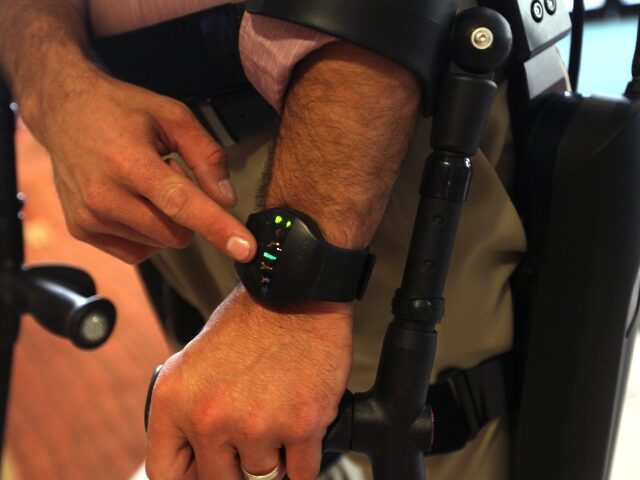Michael Straight, a former jockey paralyzed from the waist down, found himself unable to walk again after the manufacturer of his $100,000 exoskeleton refused to fix a malfunctioning battery. The part allegedly costs just $20, but the manufacturer claims the medical device is too old to fix.
404Media reports that Michael Straight, a former jockey who learned to walk again with the help of a $100,000 ReWalk Personal exoskeleton, has lost his mobility once more due to the manufacturer’s refusal to repair a faulty component. Straight, who was paralyzed from the waist down following a horseback riding accident in 2009, relied on the exoskeleton to regain his ability to walk. However, earlier this month, a malfunctioning piece of wiring in the accompanying watch that controls the exoskeleton rendered the device inoperable.
Straight reached out to the manufacturer, hoping for a quick resolution to what seemed like a minor issue. To his dismay, he was informed that the company had stopped servicing machines that were five years or more old, despite the fact that Straight had paid nearly $100,000 for the device and the necessary training. The culprit behind the malfunction was a small green connection piece related to the watch battery, a component that would cost a mere $20 to replace.
Frustrated by the manufacturer’s lack of support, Straight took to social media to share his story. “After 371,091 steps, my exoskeleton is being retired after 10 years of unbelievable physical therapy,” he wrote on Facebook. “The reasons why it has stopped is a pathetic excuse for a bad company to try and make more money.”
Straight’s experience highlights the importance of right-to-repair legislation, which would require manufacturers to make repair parts, guides, and tools readily available to the general public.
The medical device industry, in particular, has been a vocal opponent of right-to-repair legislation, lobbying heavily against such measures. Manufacturers have argued that medical devices should only be repaired by the company itself, citing concerns over patient safety. However, this stance has led to numerous absurd situations, such as trained repair professionals at hospitals being unable to fix medical devices due to manufacturer lockout codes or the unavailability of repair parts.
The issue extends beyond medical devices, with thousands of products being orphaned every year as manufacturers discontinue support, leaving customers in the lurch. Advocates for the right to repair argue that manufacturers should be required to make provisions for others to support equipment after they drop their interest, such as allowing 3D printing of parts, removing copyright restrictions on manuals and diagnostics, and posting firmware on public repositories.
Read more at 404Media here.
Lucas Nolan is a reporter for Breitbart News covering issues of free speech and online censorship.

COMMENTS
Please let us know if you're having issues with commenting.